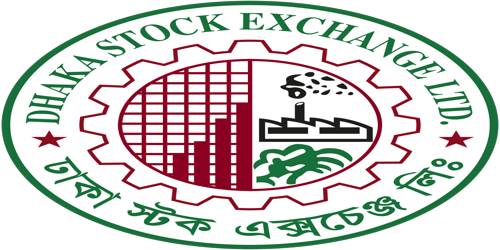Dhaka Stock Exchange (DSE) is the first and largest stock exchange in Bangladesh. It was formed under Company Act 1913 and now regulated under Company Act 1994. It’s a non-profit organization. The two vital following laws are Securities and Exchange Commission Act 1993, Securities and Exchange Commission Regulation 1994. DSE plays a very important role in developing capital market in Bangladesh.
Transaction Procedures of Dhaka Stock Exchange (DSE)
Today the transaction in DSE is made user Internet by online. In this process, the activities and prices of shares of various companies are displayed on a monitor in real time that cases the panics not to present in the spot. One can transact online from any place of the world in DSE.
In DSE the transaction is made through brokers. Brokers are members of DSE licensed by SEC. An investor has to open an account to any broker through which the brokers transact over the internet. The broker’s buy or sell shares if the concerned investors request them. When certain period, the concerned brokers send a statement and another necessary document to the investors after the transaction for whom the broker’s act.
In the existing system, in regard to the sale, the shares are handed over in the 3rd and 4th days except for the day of the transaction. And in the 5th and 6th days, the price is received. In case of buying except for the day of the transaction, in the 3rd day the price is paid and in the 5th day, the share is handed over (T + 3 = A, B and N categories and T + 9 = Z categories shares).
Trading Hour: From Sunday to Thursday, from 10.30 am to 2.30 pm the trading occurs except close and for holidays. But the stock exchange is capable to change their time on unavoidable reasons. For transition in DSE, there are four systems are operating. The systems are stated below:
- Public market: In this system, the offer of buying and selling is matched automatically and those price matches, the transaction is made. The transaction is cleared in T+3 days in a clearinghouse and T+5 days in a clearinghouse of share market. T+3/T+5 = Trading day +3/5 days.
- Block market: In this system, the transactions, at least of Tk 50,000 are made in pick and fill method. The transaction is settled by the clearinghouse in T+3 and T+9 days.
- Odd lot market: Under odd lot market mechanism, the lots of odd types are traded. That is the shares which are not well-bundled into lots, are bought and sold in this system. We know that the shares are bounded by the size of 5, 10, 15, 20, 50, 100 etc. but sometimes, shares are issued without bundling. These odd number of shares are transacted though odd lot market. The price level of odd lot share is normally lower than that of well lot shares. Besides, the right share and bonus shares are an odd lot. These types of shares are also traded in this market.
- Spot market: In this system transaction is made automatically by the matching method. The transaction and payment are settled on the same day. The documents are submitted to DSE within 10 am of the following day of transaction day.
Besides the situations stated above, in certain case such as before book closure, buying broker and selling broker can transact without clearinghouse by Delivery vs. Payment (D.V.P) basis and they can hand over the necessary documents.
Notes:
- T days = Buying + Selling day (Trading day)
- T-3 / T-5 = The following 3/5 days except for the day of transaction.
- In this system, the selling broker sends the share sold to the clearinghouse in the following 3rd day except for the day of the transaction and in the 5th day the brokers get check/pay order/DD from clearinghouse of USE as payment.
- The buying brokers give check pay order/ DD to the clearinghouse of DSE for the buying in the 3rd following day for payment and in the 5th day get the shares from the clearinghouse.
















